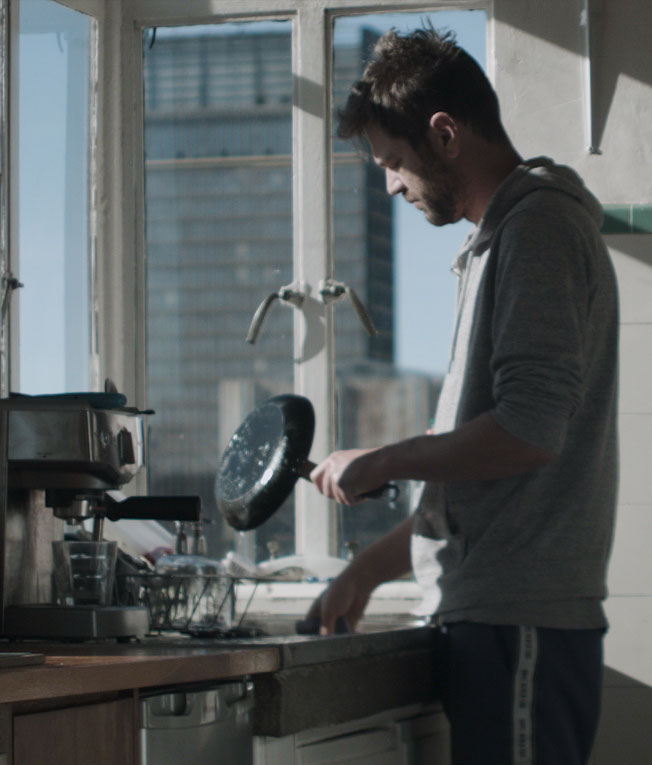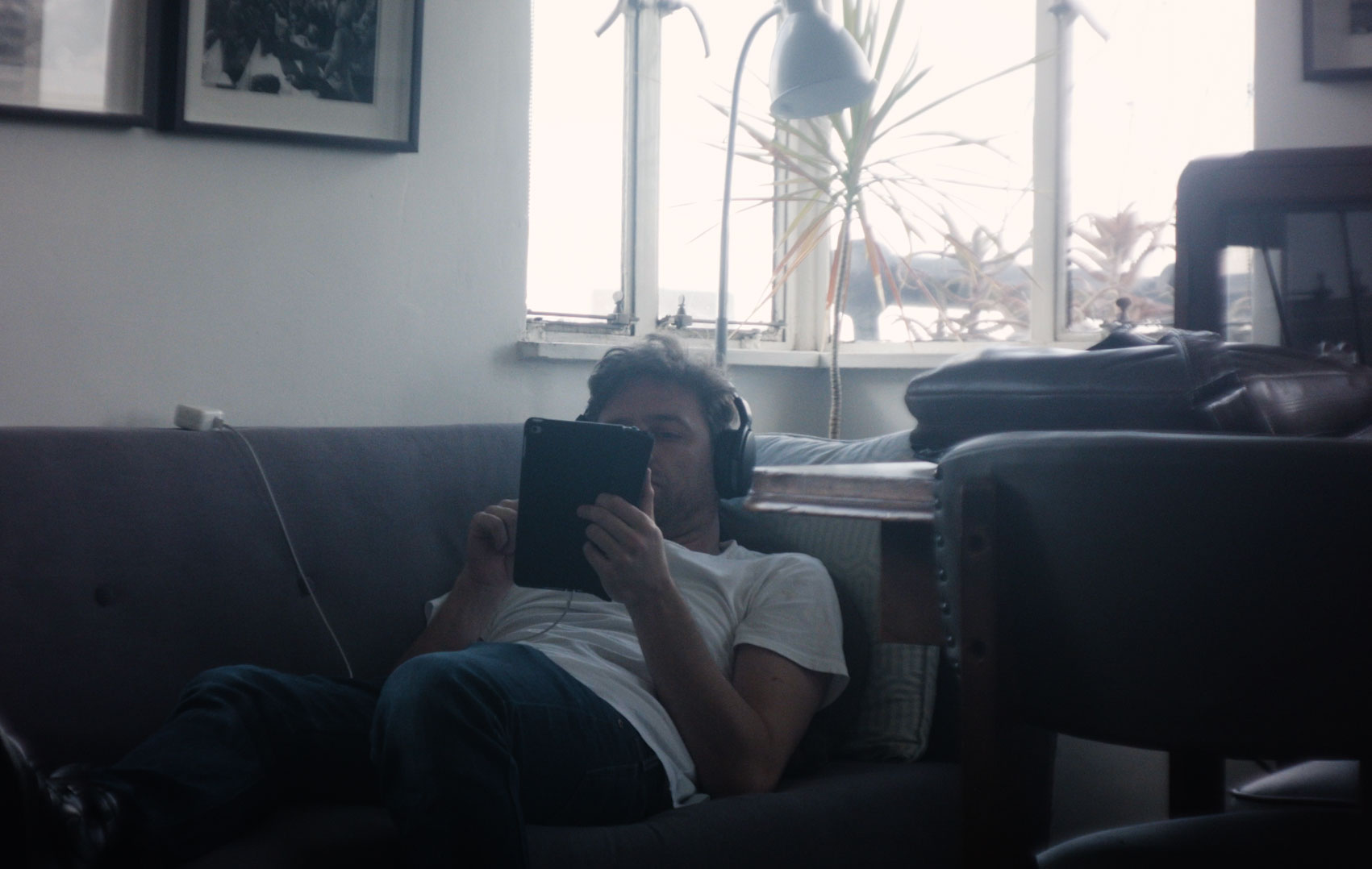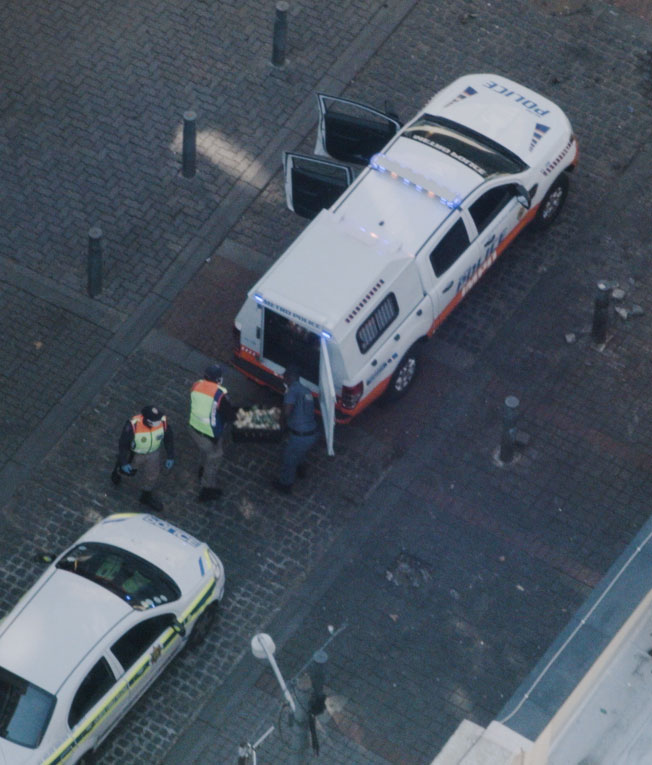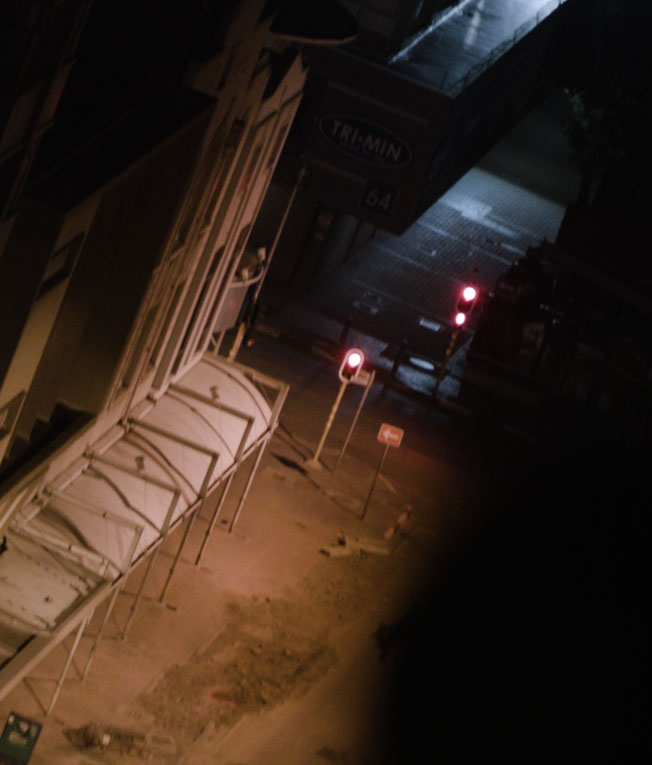Sala10: Simon Gush
S. G.
59 Joubert Street
Johannesburg
This was supposed to be a different film. But like most of life right now it was overtaken by the pandemic and the questions I wanted to ask became filtered through my experience of this moment.

Many of the questions that were bothering me are not new but have now gained new urgency. I was thinking about what “home” means. “Home” as a site of identity and belonging, as a space separate from worksite but also the site of the work of care. Suddenly I was unexpectedly stuck at home and isolated and the only way for me to think through these questions was through my own experience in my home.
The title is a reference to Chantal Akerman’s film, Jeanne Dielman, 23 Commerce Quay, 1080 Brussels. It was made in 1975, but it feels particularly relevant now. The compression of space, the experience of time, the documenting of the work of care that the film depicted was a way to understand my experiences in this time. A central question I was asking myself was: what is the work of the maintenance of life? Or rephrased in a way that also acknowledges the roles that we play in the economy: who cares for the worker? We are confronted now with the hypervisibility of this work of care, located in the home, in family and community. But we are also confronted with the huge role that the state plays in the economies of care. The role it plays in the production of workers and consumers. During this pandemic I have felt for the first time the presence of the state in my home and in my behaviour.

We are currently deeply individuated and physically isolated. Our experiences are often different and contingent on our circumstances. The role of geography, nationality, race and gender have been emphasised. This film is often about my experience of loneliness. I believe that many people are dealing with loneliness at this moment, even if their experiences and conditions might be different. We need to begin to share these experiences, and listen to those of others, understand the differences and find the commonalities, to contribute to collective understandings.
Simon Gush

There Is No Place Like Home
A Conversation between Simon Gush and Alejandra Labastida
Alejandra Labastida (AL): I saw the video again and so many of the questions and paradoxes that have been floating in the earth’s atmosphere in the last months are condensed there, not only in your script but in the visual dialogue between the rooms of your apartment and the streets outside your window in downtown Johannesburg. But the specific predicament you found yourself in at the beginning of the crisis is so charged in so many levels. [...]
FULL CONVERSATION HERE

Simon Gush, S. G.
59, Joubert Street,
Johannesburg, 2020
Video, 10’30’’
Courtesy of the artist and Stevenson, Cape Town and Johannesburg
Simon Gush
(Pietermaritzburg, 1981; he lives and works in Johannesburg)
His research looks at the relationship between work, work-ethic, subjectivity and land from the perspective of Southern Africa. He explores the place of work within contemporary South African society as well as the histories of resistance, strikes and labour migration. Gush was the Tierney Fellow for Photography, University of the Witwatersrand, Johannesburg (2016/2017); a fellow at Gordon Institute for Performing and Creative Arts, University of Cape Town (2011); and a laureate of Hoger Instituut voor Schone Kunsten in Ghent, Belgium (2007/2018). He completed an MA (Sociology) at the University of the Witwatersrand (2019).


